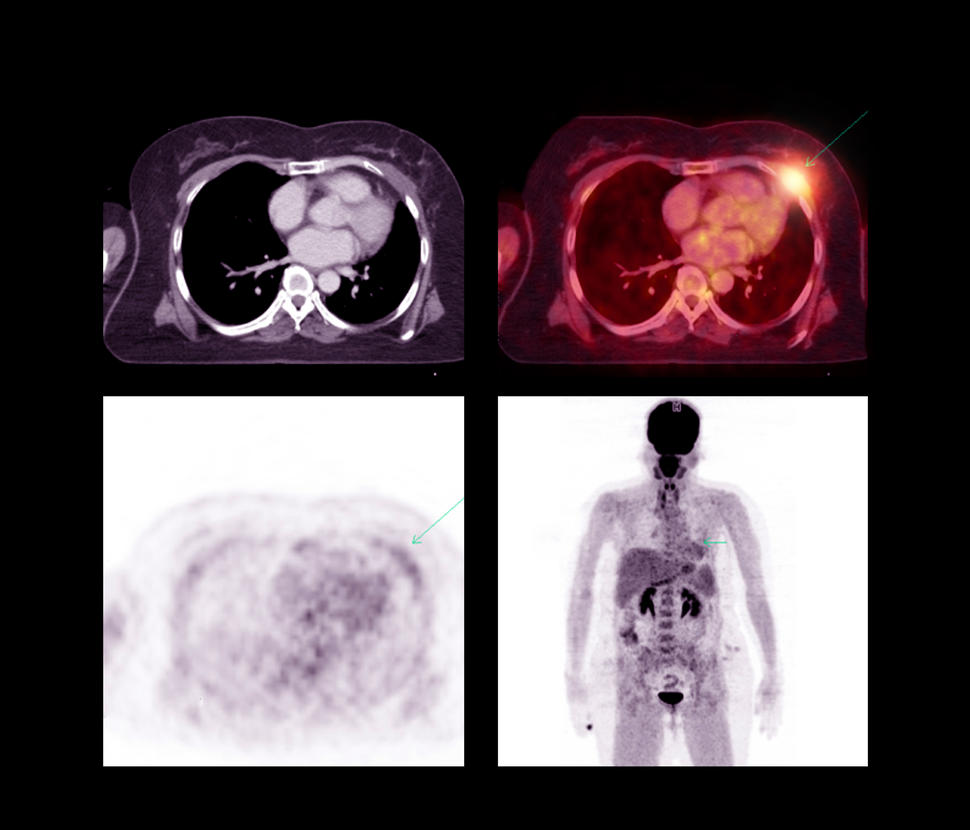Quitting Smoking Improves Survival in People with Lung Cancer
, by Edward Winstead
Quitting smoking after a diagnosis of early-stage lung cancer may help people live longer, according to a new study. The study, which included more than 500 patients in Russia, also found that quitting smoking could delay a return of the cancer or worsening of the disease.
The findings are from one of the largest prospective studies to compare the survival of people who did or did not quit smoking after a diagnosis of early-stage lung cancer.
The group of people who quit lived a median 22 months longer than the group that continued smoking (6.6 years versus 4.8 years), the researchers reported in Annals of Internal Medicine on July 27. Quitting smoking was also associated with a longer time before the disease progressed (5.7 years versus 3.9 years).
“At the time of a cancer diagnosis, some patients might feel fatalistic and think there is no point of stopping smoking,” said Mahdi Sheikh, M.D., Ph.D., of the International Agency for Research on Cancer (IARC), who co-led the study. “But our research clearly shows that quitting smoking is very beneficial at any time and that it is never too late to stop smoking, even after a diagnosis of cancer.”
Filling in Research Gaps
Previous studies have suggested that many smokers who are diagnosed with cancer continue to smoke beyond their diagnosis, including approximately half of all patients with non-small cell lung cancer (NSCLC).
Although there is strong evidence that quitting smoking decreases a person’s chance of developing lung cancer, there has been less research on whether a person could still benefit from quitting smoking after a diagnosis of lung cancer, Dr. Sheikh noted.
“The new study is important,” said Stephanie Land, Ph.D., of NCI’s Tobacco Control Research Branch, who was not involved in the research. The results, Dr. Land continued, provide “clear, rigorous evidence about the specific improvements in overall survival and progression-free survival” associated with smoking cessation in people with early-stage lung cancer.
The findings “strengthen the case” for making tobacco-cessation treatments a standard part of the routine health care for all people with cancer, wrote Nancy Rigotti, M.D., of the Tobacco Research and Treatment Center, Massachusetts General Hospital, in an accompanying editorial.
The study, which follows a 2020 report on smoking cessation by the US surgeon general, confirms existing findings while also providing new knowledge, Dr. Rigotti noted.
Dr. Land echoed this point, noting that few studies of patients with cancer have collected data on participants’ smoking status over time.
“The current study, however, prospectively addressed the most clinically relevant question related to smoking by patients with cancer: What is the impact of smoking cessation after diagnosis?” Dr. Land said.
Annual Telephone Surveys of Patients
During the decade-long study, which was sponsored by IARC, the researchers conducted annual telephone interviews with 517 patients who were current smokers when they were diagnosed with early-stage NSCLC. Patients were followed for an average of 7 years.
The surveys collected information about patients’ smoking status, treatments, and events such as a recurrence or spread of cancer.
A total of 220 of the patients (42.5%) quit smoking, most of them soon after their diagnosis; 8 of those who stopped smoking later resumed smoking.
At 3 years and 5 years after being diagnosed with lung cancer, patients who quit smoking were more likely to be alive than other patients, the study found.
The researchers estimated that 3 years after diagnosis, 75% of those who quit smoking would be alive, compared with 66% of those who continued smoking; 5 years after diagnosis, 61% of those who quit smoking and 49% of those who continued smoking would still be alive.
Quitting smoking improved how long people lived regardless of whether they had been mild-to-moderate or heavy smokers. It also improved survival regardless of whether they received chemotherapy or radiation therapy.
“These findings suggest that all patients with lung cancer should be encouraged to quit smoking during each visit after diagnosis, regardless of the stage of their tumors, smoking intensity, and treatment status,” Dr. Sheikh said.
The researchers used statistical techniques to account for differences that might occur with changes in treatment over time, and also to account for differences in the timing of when patients quit or resumed smoking.
The study did not look at biological differences in participants that might explain why those who quit smoking survived longer. But carcinogens in tobacco smoke can damage the DNA of normal and tumor cells, potentially accelerating the growth and progression of tumors, noted Dr. Sheikh.
Making Tobacco Treatment a Routine Part of Cancer Care
In her editorial, Dr. Rigotti wrote, “Unfortunately, despite this strong case for action, tobacco treatment has yet to become a standard component of cancer care delivery. The challenge is to implement this goal into practice. Efforts are under way.”
To address this gap, NCI launched a nationwide effort as part of the Cancer MoonshotSM to help people who are undergoing treatment for cancer to quit smoking. The Cancer Center Cessation Initiative (C3I) has funded efforts at 52 NCI-Designated Cancer Centers to develop or improve smoking cessation services for the patients they treat.
Since 2018, C3I tobacco treatment programs have reached more than 50,000 patients with cancer. The initiative integrates cessation interventions into routine aspects of a patient’s treatment.
A goal of C3I is to make smoking cessation resources available wherever patients with cancer who smoke receive clinical care, according to Dr. Land, who is the NCI lead for the initiative.
Resources to help patients with early-stage lung cancer stop smoking are critical, said Dr. Sheikh.
“Patients trying to quit smoking need support—it is not enough to only encourage them,” he said. “We need to implement tobacco treatment programs in cancer care settings and make them a routine part of cancer care.”
